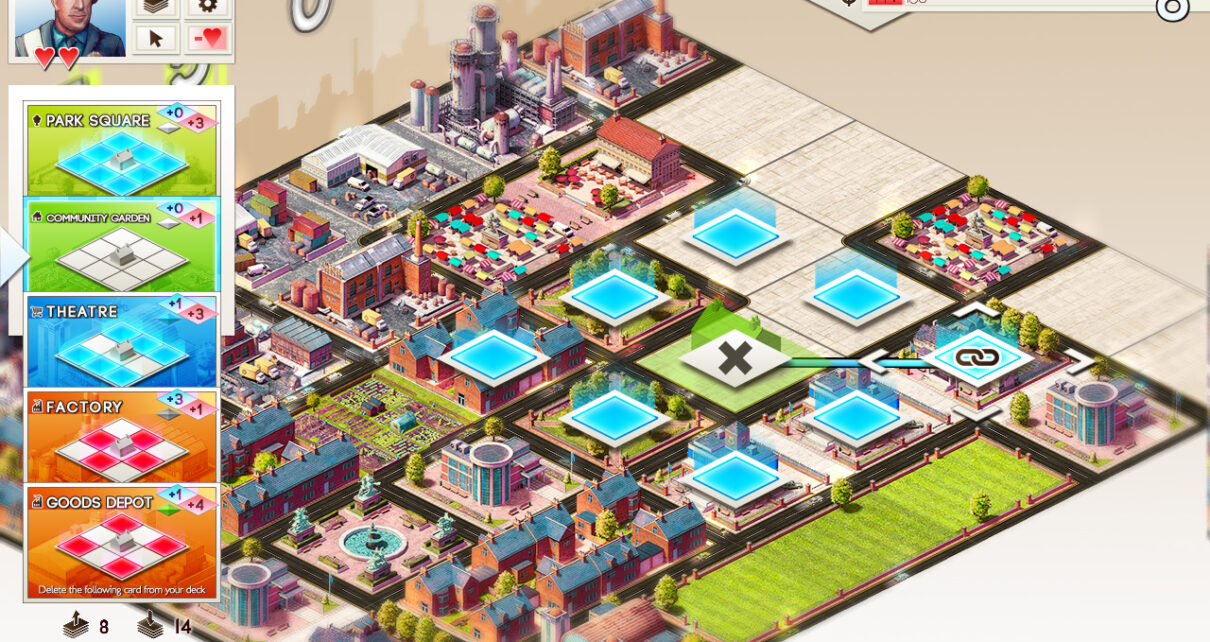Is Prison Life A Concrete Jungle
How was it for you after completing your first year of a 3 to 5 prison sentence?
Vernie Seidel
How was it for you after completing your first year of a 3 to 5 prison sentence?
I never did 3–5 years. I did 29 years on a life sentence. The first 5 years in prison were at Missouri State Penitentiary called “The Walls” and “The Bloodiest 47 acres”. After my first year in there, I was convinced that I would die in there. However, after 5 years I was lowered to a custody level 4 and transferred.
In the course of my 29 years of incarceration I was in several prisons, but none as bad as the Walls. It was closed in 2004 and is now a museum that gives tours. In June of this year, I went back for a tour. Many memories came flooding back. I even got to see one of the cells I lived in.
Is Prison Life A Concrete Jungle
I did a little bit longer, but I will give your question a go anyway. After 6 years of prison…..
It took getting used to. Being able to walk wherever I wanted. No red lines signifying forbidden areas. No loud speaker constantly going off. The noise, or lack there of. Privacy, there is none in prison. The ability to open doors without permission. No designated time for everything. Being around non criminals, you be amazed at the lack of social skills. Or maybe not. Freedom didn’t feel real for a few days. The smell of women’s perfume, never realized how much I missed that. Always feeling like everyone you see knows, and are judging you. I had to learn how to let little slights go. Had to learn to trust people.
Is Prison Life A Concrete Jungle
It was rough. I was transferred from the Miami Camp where I self reported earlier that year, with no warning or notice.
This is what happened:
- Transported to the Miami Metro Detention Center by van
- Exchanged my clothing for paper pants, white t-shirt and paper shoes
- Handcuffed, chained, and manacled – ever try to walk with leg irons, handcuffed, and the cuffs chained to your waist?
- Transported to Miami International Airport by bus
- Boarded a plane (Con-Air as it is affectionately called) on the airport Tarmac, surrounded by US Marshals armed with shotguns and automatic weapons
- Sat next to a murderer who told a fairly intriguing story – I believed him
- Flown to Atlanta
- Bused to the Atlanta USP. Processed, and at 2 AM tossed into the Special Housing Unit to share a dark cell with an unknown inmate
- Awoken at 4 AM to board a bus to the airport
- Stood on the Tarmac for over an hour in 28 degree weather – paper pants, t-shirt, paper shoes. A female correctional officer kept begging the Marshals to get us on board the plane. Over one hundred men, shivering, lips blue, trouble standing. The Marshals were laughing at us.
- Flown to Brooklyn New York. Bused to the Metropolitan Detention Center in Brooklyn to be processed once again
- Each time you leave a prison, you are processed out and each time you enter one you must be processed in – all manual paperwork. Processed like cattle
- Food while traveling on Con Air and in these temporary layovers consists of 2 pieces of bread and bologna, and an apple
- Water is given sparingly so you don’t ask to use the facilities
- It’s tough to pee while manacled, shackled and handcuffed
- Spent the night sleeping on the concrete floor of a cell in Brooklyn with 6 other men
- Bused the next morning to a prison in New Hampshire after a stop to drop off prisoners in Rhode Island
- Spent 4 months in the Stafford Country Detention center – supposedly awaiting arraignment on additional charges – which never came
- Neither my attorney nor myself were ever given a complete explanation
- At least the food was good and I took classes, read a lot and became really good at Double Six Dominoes
- Had to endure 2 riots and 3 lock downs
- Awoken one morning at 2 AM and told I was being transported – no warning
- No one ever tells you where you are going
- Bused back to Brooklyn MDC where I spent 2 months – later found out they were waiting for available space for me on Con Air
- MDC Brooklyn was tolerable, as about a dozen inmates befriended me and were helpful
- Awoken one morning and told I was being transported
- Bused to the airport and flown via Con Air to Oklahoma City. The BOP’s Transit Center – a huge prison right on the airport grounds
- The plane pulls right up to the prison, and as you exit the plane fully chained and manacled through the jetway, you end up in the prison
- This time a kind CO told me I was going to be held there until they could arrange space on Con Air back to Miami
- I spent 2 weeks in the Transit Center
- Back on Con Air and flown to Miami
- Bused back to the Miami Federal Camp where I spent a week in the Special Housing Unit sharing a cell with a drug dealer, the King of the Bahamas while they “processed” me
- Finally, I was released from the SHU and walked over to the Miami camp where I served the rest of my 48 month sentence in a more “normal” setting and manner
- It was difficult to let my family know where I was the whole time – for days at a time, one time for weeks, they had no clue, and I had no way of contacting them
Life in the BOP. It was a really great first year!
Is Prison Life A Concrete Jungle

Getting out is a serial feeling. It’s hard to describe, like better then x-mas morning when you’re a kid but better. The part that sucks it how odd you feel almost immediately after release. Like everyone is looking at you, and they know you just got out. The worry about how you will support yourself, where will you be staying. How you will pay rent. How and where you will be working or earning money. How you will feed yourself. Getting to the mandatory appointments set up by your parole officer. Learning how to live in a small town at that allows you remain free. What seems to be easy to do to make ends meet now will be tiresome and harder to do . The people you once had to go to for help are not available anymore to help you. They have moved on. Depression will be hard to avoid and at times you will wish you were back in prison where you can feel more comfortable. If your not careful you will end up back in there like I did.
After the first year time really went fast. But the low point of being denied parole set me back for about a month. I had a good group of guys that kept me laughing and I was back in my rhythm again. The hardest is the first year and the last six months. I really can’t tell which is harder. Getting use to a new environment or walking on eggshells hoping nothing goes wrong so I can get back to my old one.
I’ve been out of prison for 12 years. Did it all without violating parole or committing a new crime. After serving 16 years for armed robbery I worked for 5 months as a furniture maker from January 11, 2007 to may 15, 2007.
After getting laid off due to slow requests for custom furniture, I searched for another job while doing personal shopping. After not finding a job I was going for I walked into A pancake house chain and asked for a job. This was my first year.
The manager asked, “what are you looking for, can you cook or ever served tables”?
While in prison I had learned 3 different computer languages and tutored computers, life skills, CPR, first aid and jewelry making. My title was “Programs Services Assistant”. Some of my time was spent as part of this job was database design and data entry, and I was very good.
I looked at the manager and said, “I know how to wash dishes and I need a job, I’ve worked in the prison kitchens and you will not regret it”. The manager looked at me, looked at my resume fit for a $50,000 dollar salary. “43 is a little old for a dishwasher, let me see if I can get you higher pay”. He left and talked to the regional manager, came back and said, “how’s 11 dollars sound”.
I worked at that restaurant part time for 400 a month, taking the bus when I can. Because the other dishwashers were teenager they couldn’t work past 930 and had to be at school in the morning I filled in which made me more money. While I wasn’t working I was taking te bus to job interviews. After 5 months my phone rang.
“How would you like to work for Food bank of Alaska”? “I’d love to work there, giving back is what I do”.
I walked into the interview and sat before 4 ladies and was asked, “what does the programs services assistant do”? I went on and explained the database I had created which tracked every inmate order, their materials they have in their hobby craft items, every education class they took, their race, waiting lists which automatically shuffled the next inmate on a list into their chosen hobby. The database also kept track of inmate orders, the cost and totals of every cent they spent.
When I finished, they looked at each other with a gleam in their eyes and explained they were looking for a data manager and decided the new title should be “Programs Services Assistant”.
I worked there from March 2008 to April 2015. I started out at 12.50 an hour and was given a raise a year later. The directors insisted they find money to pay me more. After a year I was given the title of Inventory Specialist, it was a new title for the organization. I was asked to clean up the inventory which consisted of 6 million pounds of food a year and provided 190,000 Alaskans with supplemental food. After 3 months I was asked to take over customer service in the warehouse. When I left, i was the Facilities and Equipment Supervisor. As a customer service rep I increased cashflow of 50,000 my first 6 months. I managed and personally touched 6 different federal food programs. As a facilities supervisor i saved the organization over 14,000 a month by cutting unnecessary contracts and streamlining delivery operations. Before I left I provided valuable information about deliveries and poundage delivered by each truck by compiling 3 years of data and analyzing each printout. It took me 3 days to do what no thought was possible. The report was given to the state legislature who awarded us 240,000 dollars for new trucks.
There were tears the day I left, not because of what I had done, but because of who I had become.
The past 3 years found me at home in my village, working as the EMS coordinator. I had organized a team of volunteer firefighters into building a professional fire department. I trained among the best firefighters and am one of 22 specially trained to fight ship board fires in the State of Alaska. I’ve provided life saving measures, including talking down an armed suicidal man while I was unarmed. I’ve assisted and coordinated medivacs, search and rescue, saved homes from fires.
I became a man who will do whatever it takes to help others.
I held a Basic Firefighter Certification and ETT. I am one of 22 Firefighters in Alaska registered with Homeland security to Fight Shipboard Fires. During my release I’ve helped those who were released from prison in finding housing and employment.
I used my prison experience in my Resume, my fellow felons who did time with me were my character witnesses, along with a case manager from prison. I held faith in the education and skills I learned, not by where I learned, Overcome your self doubt.










